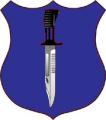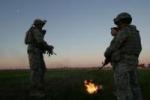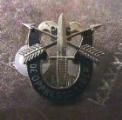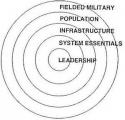From Tom Ricks here
OK, I can go with the basic argument. I can't see what West Point adds to mix, in the same way I can't see the point of Sandhurst in the UK, the attachment to which is purely emotional. Neither of these institutions are required to produce first class officers.
But...
That's pure rubbish, or a data free opinion. If the problem is as Ricks opines, then closing down the collages does not solve it. If you don't need the War Collages, then you do not need Officers to go and get PhD's. PhDs do not make better officers.We should also consider closing the services' war colleges, where colonels supposedly learn strategic thinking. These institutions strike me as second-rate. If we want to open the minds of rising officers and prepare them for top command, we should send them to civilian schools where their assumptions will be challenged, and where they will interact with diplomats and executives, not to a service institution where they can reinforce their biases while getting in afternoon golf games. Just ask David Petraeus, a Princeton PhD.
Most of the brilliant commanders of the 20th century lacked PhDs, or any other form of higher education. However, most had been to War Collage or an equivalent.














 ) and the institutional culture - but ultimately, the quanta of education is up to the individual student. And, yeh, I also perceived some condescension in the article.
) and the institutional culture - but ultimately, the quanta of education is up to the individual student. And, yeh, I also perceived some condescension in the article.


 or what was called Brushfire Wars (COIN) in the late 50's and 60's. Over time this has been completely forgotten.
or what was called Brushfire Wars (COIN) in the late 50's and 60's. Over time this has been completely forgotten.

Bookmarks